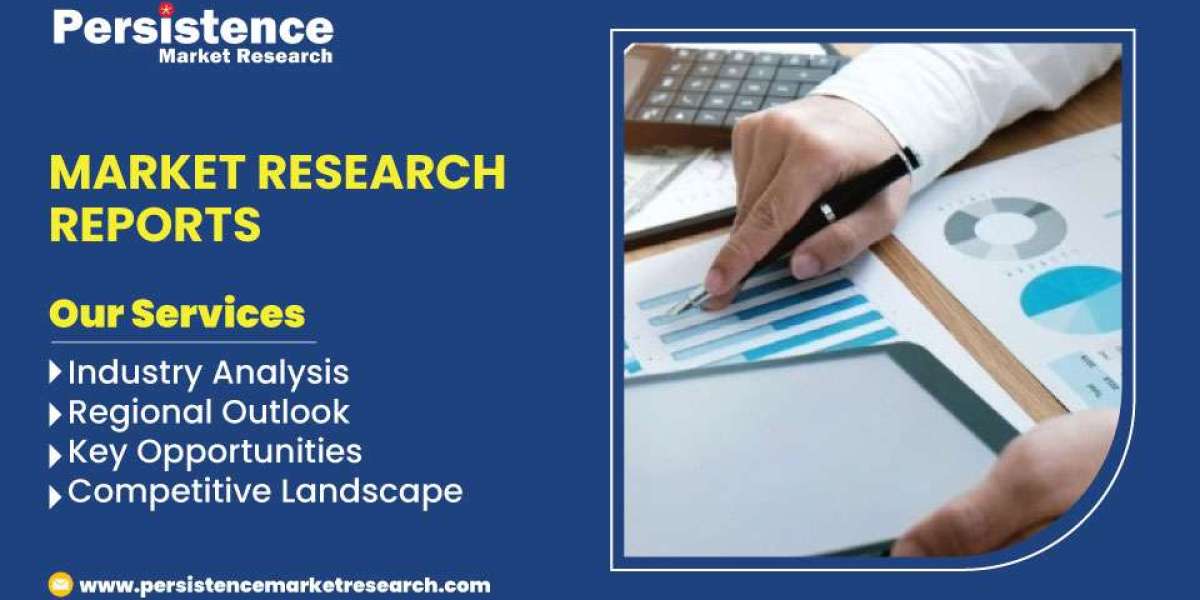The European biosimilars market is poised for remarkable growth in the coming years. With a projected compound annual growth rate (CAGR) of 15.4% during the forecast period from 2024 to 2031, the market is expected to expand from US$ 12.3 billion in 2024 to an impressive US$ 33.5 billion by 2031. This growth can be attributed to several factors, including increasing demand for affordable biologics, rising healthcare expenditures, and advancements in biotechnology. As the adoption of biosimilars gains momentum, Europe is set to become a key hub for the development, production, and commercialization of these life-saving therapeutics.
Market Overview and Key Drivers
Biosimilars, which are biologic medical products highly similar to already approved reference products, are transforming the pharmaceutical industry. Unlike generic drugs, biosimilars are not identical to the reference biologics but are close in terms of their efficacy, safety, and immunogenicity profile. The European biosimilars market is witnessing accelerated growth due to several factors:
Cost-Effectiveness: Biosimilars offer significant cost savings compared to their reference biologics, making them an attractive option for healthcare systems grappling with rising costs of treatments. This affordability aspect is particularly important for countries with large public healthcare systems, like the United Kingdom, Germany, and France.
Aging Population: Europe is home to one of the world’s oldest populations. With an increasing number of individuals diagnosed with chronic diseases such as cancer, rheumatoid arthritis, and diabetes, there is a growing demand for affordable treatments. Biosimilars are emerging as a cost-effective alternative to traditional biologics, catering to this demographic shift.
Regulatory Approvals: The European Medicines Agency (EMA) has been a pioneer in establishing robust regulatory frameworks for the approval of biosimilars. This has instilled confidence among healthcare providers and patients alike, leading to increased adoption across the continent.
Expiring Patents of Biologics: Many blockbuster biologic drugs have lost patent protection or are nearing the end of their patent life, providing a window of opportunity for biosimilars to enter the market. This is driving the growth of biosimilar treatments, especially for high-demand drugs used in oncology and autoimmune diseases.
Biosimilar Drugs and Drug Classes
The European biosimilars market is primarily segmented by drug, drug class, indication, and distribution channel. The most prominent biosimilar drugs on the market include:
Adalimumab: Used to treat autoimmune diseases, adalimumab (brand name Humira) is one of the most widely used biologic drugs in Europe. Several biosimilars of adalimumab are already available, offering competitive pricing to help manage the high demand for this class of therapy.
Bevacizumab: Bevacizumab (brand name Avastin) is a key treatment for various types of cancer, including colorectal, lung, and breast cancer. Biosimilars of bevacizumab have made a significant impact on cancer care, providing patients with more affordable options for treatment.
Trastuzumab: Used in the treatment of HER2-positive breast cancer, trastuzumab (brand name Herceptin) has seen the emergence of biosimilars in Europe, increasing treatment accessibility and reducing the financial burden on healthcare systems.
Rituximab: Rituximab (brand name Rituxan) is commonly used in the treatment of lymphoma and autoimmune diseases such as rheumatoid arthritis. Several rituximab biosimilars have been approved in Europe, catering to the demand for cancer treatments.
Infliximab: Used to treat autoimmune diseases such as Crohn’s disease and ulcerative colitis, infliximab (brand name Remicade) biosimilars have rapidly gained traction in Europe due to their affordability and effectiveness.
Etanercept: A widely used biologic to treat autoimmune diseases like rheumatoid arthritis, etanercept (brand name Enbrel) has seen an influx of biosimilar versions in the European market.
Epoetin Alfa and Filgrastim: These biosimilars are used for anemia management in cancer patients and to stimulate the production of white blood cells, respectively. Both categories have been well established in Europe and contribute to the market’s growth.
Drug Classes Driving Growth
Biosimilars span a wide array of drug classes, each with its own therapeutic application. The key drug classes driving the European biosimilars market include:
Antirheumatics: Biosimilars in this category primarily target diseases like rheumatoid arthritis, which has a high prevalence across Europe. Drugs like etanercept and adalimumab, which are used to treat these conditions, make up a significant portion of the market.
TNF Alpha Inhibitors: Tumor necrosis factor (TNF) alpha inhibitors, such as infliximab and adalimumab, are widely used to manage autoimmune diseases. As demand for these treatments grows, so does the opportunity for biosimilar alternatives.
VEGF/VEGFR Inhibitors: Vascular endothelial growth factor (VEGF) inhibitors, including bevacizumab, are essential in cancer care. As the number of cancer patients rises, the need for affordable biologic treatments in this class is growing.
HER2 Inhibitors: HER2-targeted therapies, such as trastuzumab, play a critical role in the treatment of breast cancer. Biosimilars in this class are expected to drive substantial market growth as the demand for breast cancer treatments continues to rise.
Selective Immunosuppressants and Interleukin Inhibitors: These drug classes, which include therapies used in autoimmune diseases, represent a growing segment of the biosimilars market as the treatment of these conditions continues to evolve.
Therapeutic Indications Driving Adoption
The biosimilars market in Europe is also expanding in response to the rising demand for treatments in specific therapeutic areas. The primary indications driving the market include:
Oncology Diseases: Cancer remains one of the most significant health challenges in Europe, with an ever-increasing number of diagnoses each year. Biosimilars of biologic oncology drugs such as trastuzumab and bevacizumab are becoming essential in providing affordable cancer treatments.
Autoimmune Diseases: With diseases like rheumatoid arthritis, lupus, and psoriasis affecting millions of Europeans, biosimilars offer an affordable solution for managing these chronic conditions.
Skin Disorders: The use of biosimilars in dermatology is gaining traction, particularly for conditions like psoriasis. Biologics like adalimumab and etanercept are being widely used to treat these skin disorders, and biosimilars are helping make these therapies more accessible.
Inflammatory Bowel Disease (IBD): Conditions such as Crohn’s disease and ulcerative colitis are prevalent in Europe, and biosimilars of biologics like infliximab are becoming a critical part of the treatment landscape for these diseases.
Rare Diseases: Biosimilars are also being used in the treatment of rare diseases, particularly those that require expensive biologic therapies. The availability of biosimilars is increasing patient access to life-saving treatments.
Distribution Channels in Europe
The distribution of biosimilars in Europe is typically through three primary channels:
Hospital Pharmacies: The largest volume of biosimilars is sold through hospital pharmacies, where specialized biologic treatments are dispensed to patients undergoing hospital-based therapies.
Retail Pharmacies: As the demand for biosimilars grows, retail pharmacies are playing an increasingly significant role in providing these drugs to patients, especially for chronic conditions like rheumatoid arthritis.
Online Pharmacies: With the growth of e-commerce and telemedicine, online pharmacies are emerging as a popular distribution channel for biosimilars, allowing patients to conveniently purchase these drugs from the comfort of their homes.
Key Players in the Market
Several pharmaceutical companies are making significant strides in the European biosimilars market. Some of the key players include:
Fresenius Kabi
Biogen Inc.
Celltrion, Inc.
Pfizer Inc.
Amgen Inc.
Samsung Bioepis Co., Ltd.
Biocon
Viatris (Mylan Pharmaceuticals Inc.)
Coherus BioSciences, Inc.
Boehringer Ingelheim Pharmaceuticals, Inc.
Eli Lilly and Company
Bio-Thera Solutions, Ltd.
These companies are at the forefront of biosimilar development, contributing to market expansion through strategic alliances, acquisitions, and technological advancements.
Conclusion
The European biosimilars market is undergoing a transformative period, with substantial growth expected over the next several years. The combination of cost-effectiveness, the aging population, the expiry of biologic patents, and robust regulatory frameworks are fueling the market’s expansion. As biosimilars become increasingly integrated into healthcare systems across Europe, they offer a promising future for both patients and healthcare providers, providing greater access to life-saving treatments at affordable prices. As the market matures, continued innovation and regulatory support will be key to sustaining this growth trajectory.














